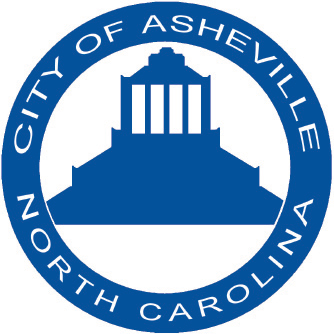More than a year has passed since Asheville City Council traded the grandiose chambers of City Hall for the modesty of home offices in response to the COVID-19 pandemic. Since April 2020, Council members have met virtually for their biweekly meetings, with members of the public calling in or submitting emails to make their voices heard.
But beginning Tuesday, June 8, Council and the community will once again participate in city business face to face. The meeting will take place in the Banquet Hall at Harrah’s Cherokee Center – Asheville at 5 p.m. (The Buncombe County Board of Commissioners returned to in-person meetings on May 18).
The main event of the night will be a public hearing on City Manager Debra Campbell’s proposed 2021-22 annual operating budget, which includes an effective property tax increase of 3 cents per $100 in valuation. Council members will then have two weeks to modify the spending plan and tax rate before their scheduled vote on adopting the budget Tuesday, June 22.
Commenters wishing to speak live at the meeting will be required to attend in person, but the city will continue to accept email (AshevilleCityCouncilJune82021@publicinput.com) and voicemail (855-925-2801, meeting code 7730) comments received by 9 a.m. Tuesday morning.
The meeting can also be accessed via phone at the same number used for commenting, as well as through the city’s YouTube channel, for those who do not wish to participate in person.
In other news
Council will consider a resolution that would redirect $2.1 million from the sale of city-owned property to fund community reparations. Land at 172 and 174 South Charlotte Street was sold to White Labs, a San Diego-based yeast manufacturer and brewpub, for approximately $3.7 million in December.
According to a staff report, a portion of the property includes land the city purchased in the 1970s as part of the urban renewal of East End/Valley Street, which disrupted existing Black communities. Federal restrictions thus required $1.6 million of the sale proceeds to fund the city’s Community Development Block Grant program. In April, that money was used to purchase land for the expansion of the Deaverview housing community.
During an Oct. 27 Council meeting, commenters had called for the remaining $2.1 million to go toward reparations. At the time, however, Mayor Esther Manheimer said some of the money had already been earmarked for an expansion of the city’s transit center, and staff did not provide a direct answer to former Council member Brian Haynes when asked if the funds could be directed to reparations.
The staff report notes that previous iterations of Campbell’s proposed budget included a $1.2 million reparations appropriation from the city’s fund balance. That money would be removed from the budget if the resolution is approved.
Council is also expected to proclaim June 19 as Juneteenth — a commemoration of the 1865 announcement of the Emancipation Proclamation by Union soldiers to enslaved people in Texas — during the Tuesday meeting. The staff report emphasizes that if the funding resolution passes, Asheville’s first reparations money would be established in advance of the new city holiday.
Consent agenda and public comment
The consent agenda for the meeting contains 15 items, which will be approved as a package unless singled out for separate discussion. Highlights include the following:
- A resolution authorizing the city manager to apply for, and accept if awarded, a $275,416 High Intensity Drug Trafficking Areas grant to reduce drug trafficking and production of illegal drugs. While the Asheville Police Department would act as the fiduciary for the grant, the funding would not increase the APD’s operational budget. The item had previously been removed from Council’s April 27 consent agenda at the request of member Kim Roney.
- A resolution authorizing the city manager to enter into a $95,000 contract with Winston-Salem-based AECOM to update Asheville’s 2009 Sustainability Management Plan into a Municipal Climate Action Plan. Council passed a resolution declaring a climate emergency in January 2020, which directed city staff to identify the resources required to meet Asheville’s climate goals; as previously reported by Xpress, little progress toward that end has yet been made.
- A resolution authorizing the city manager to execute a $90,000 contract with Griffin Waste Services for the continued rental and maintenance of portable toilets and handwashing stations through December. The amenities were installed for public use as an emergency response in March 2020 and are expected to continue until the city’s COVID-19 emergency declaration is canceled.
- Approval of a Memorandum of Agreement with North Carolina and other local governments on how to distribute proceeds from the settlement of opioid litigation with prescription drug producers and distributors. Under the proposed settlement structure, Asheville could receive approximately $16 million over 18 years to address the opioid epidemic locally. Buncombe County, which stands to receive about $21 million, approved the memorandum on June 1.
The full meeting agenda and supporting documents can be found at this link.




Before you comment
The comments section is here to provide a platform for civil dialogue on the issues we face together as a local community. Xpress is committed to offering this platform for all voices, but when the tone of the discussion gets nasty or strays off topic, we believe many people choose not to participate. Xpress editors are determined to moderate comments to ensure a constructive interchange is maintained. All comments judged not to be in keeping with the spirit of civil discourse will be removed and repeat violators will be banned. See here for our terms of service. Thank you for being part of this effort to promote respectful discussion.